
Weitzman ECHO Complex Integrated Pediatrics 2023-2024
Program Information
This ECHO program meets regularly on the 2nd and 4th Wednesdays of each month at 12pm ET / 9am PT.
The Weitzman ECHO Complex Integrated Pediatrics connects primary care medical and behavioral health providers nationally with a multidisciplinary team of experts and specialists in complex pediatric care. The Complex Integrated Pediatrics clinic uses twice-monthly videoconferencing sessions to explore a variety of medical and behavioral health topics designed to improve the quality of care and clinical outcomes for rural and underserved children and adolescents. Experts from Community Health Center, Inc., the School-Based Health Alliance, the Child Guidance Center of Southern Connecticut, and rotating guest specialists present on key issues and provide recommendations on challenging cases posed by participants. The clinic is designed to emphasize the integration and collaboration between medical and behavioral health providers, reducing variations in care. Participants develop new clinical competencies and confidence with complex pediatric cases. The 10-month curriculum addresses topics such as RSV, substance use, asthma, anxiety, obesity, trauma, neurodiversity-affirming care, and nonsuicidal self-injury.
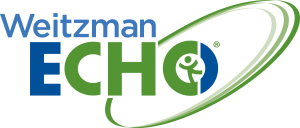

Target Audience
This activity is appropriate for the following audiences:
- Primary care providers (MDs, DOs, NPs, PAs)
- Behavioral health providers (Psychiatrists, psychologists, social workers, therapists)
- Nurses
- Other members of the care team
Learning Objectives
Related to children and adolescents, by the end of this program participants will be able to:
- Use evidence-based techniques in the screening, treatment, and management of common behavioral health conditions, including substance use disorders
- Employ best practices in the screening, treatment, and management of infectious diseases and conditions requiring medical specialty care
- Apply a strengths-based approach that builds on a healthy lifestyle foundation for children and families
- Demonstrate an ability to use stigma-reducing language to enhance care
- Illustrate an awareness of the impact that race, ethnicity, gender, and sexual orientation have on the care of children and their families
Acknowledgement of Support
Weitzman Institute is pleased to announce that this ECHO is being offered as part of the Telehealth Technology-Enabled Learning Program (TTELP) in order to improve rural health outcomes. This program is supported by the Health Resources and Services Administration (HRSA) of the U.S. Department of Health and Human Services (HHS) as part of a financial assistance award totaling $464,179 with 100% funded by HRSA/HHS and 0% funded by nongovernment sources. The contents are those of the authors and do not necessarily represent the official views of, nor an endorsement, by HRSA/HHS, or the U.S. Government.
FAQs
What is Project ECHO®? Project ECHO® was developed by Sanjeev Arora, MD, at the University of New Mexico Health Sciences Center and is a collaborative model of medical education and care management that helps improve clinicians' knowledge and skills to improve patient care. ECHOs are designed to be longer-term continuing education programs to create a virtual community for providers and care team members to connect and learn from leading experts and receive guidance from peers and experts. This ECHO learning community provides mentorship and peer support, making this model unique and providing a long-lasting impact beyond typical e-learning styles. Weitzman ECHO clinics are specifically designed to meet the needs of safety net primary care providers and their communities like providers practicing in federally qualified health centers (FQHCs).
How is each ECHO session structured? Each ECHO session consists of a 25-minute didactic presentation by the ECHO's expert faculty and real patient case discussion presented by participating providers. During each ECHO session, participants learn skills and receive clinical pearls from the expert faculty didactic presentation and the case discussion and recommendations.
How much does it cost to participate? Enrollment is now open at no cost for the next curriculum year.
Who should participate? Primary care medical providers, behavioral health providers, nurses, or other members of the care team are welcome to join and register, with special priority given to providers from rural settings.
When do sessions occur? This Project ECHO occurs twice monthly for one hour. Our kickoff session will occur on October 11, 2023, and sessions will occur every 2nd and 4th Wednesday of each month at 12:00pm ET / 9:00am PT.
What level of participation is expected? Complex Integrated Pediatrics ECHO consists of 20 sessions in total. ECHO participants are expected to:
- Attend at least 75% of sessions
- Complete pre- and post-surveys
- Submit and present at least one case during a live session to receive recommendations from experts and peers
- Engage during peer case discussion by sharing suggestions in the chat or unmuting sharing aloud
- Share webcams, when available
How do I join the live sessions? Do I need any special equipment? Weitzman ECHO sessions are held virtually using the Weitzman Education Platform and Zoom Video Conferencing. Access is available on any computer with an internet connection. For instruction on how to how to join the live session, follow these Step-by-step instructions: Entering a Live Session.
How do I claim credit and download my CE/CME certificate? After the live session is completed, the session evaluation will be available directly in the platform. Once you complete the session evaluation, you will be able to claim your credits and download your certificate.
How do I sign up? Register now by clicking on the "Register" tab at the top right of this page. After you complete registration, we will follow up with onboarding materials so you can join the program. If you have any questions regarding registration or the ECHO program, please contact Anthony DiMartino, Education Specialist, at [email protected].
AMA Designation Statement
Moses/Weitzman Health System Inc. designates this Live activity for a maximum of 20 AMA PRA Category 1 Credit(s)™. Physicians should claim only the credit commensurate with the extent of their participation in the activity.
Schedule
This ECHO meets on the 2nd and 4th Wednesdays of every month from 12pm ET / 9am PT to 1pm ET / 10am PT.
Below are the dates and topics of each session! Exact dates may be subject to change, and topics may also be updated depending on the availability of presenters.
- October 11 - Hot Topics for Back to School
- October 25 - RSV & New COVID Recommendations
- November 8 - Anxiety Interventions for Children & Adolescents
- November 29 - Asthma Management Guidelines
- December 13 - Problematic Interactive Media Use
- January 10 - Trauma-Informed Care
- January 24 - Overview of Adolescent Substance Use
- February 14 - Engaging Caregivers in Adolescent Substance Use Prevention & Treatment
- February 28 - Cannabis Use in Adolescents: Updates, Implications, & Treatment
- March 13 - Role of the Pediatric Provider in IEP & 504 Planning
- March 27 - Endocrinology & Obesity
- April 10 - Disordered Eating
- April 24 - RSV & Bronchiolitis: New Vaccines & Care
- May 8 - Human Trafficking
- May 22 - Neurodiversity Affirming Care
- June 12 - Intersectional Trans Care
- June 26 - Working with Families of Trans Youth
- July 10 - Pediatric Trauma
- July 24 - Vaccine Scheduling & Hesitancy
- August 14 - Antibiotic Stewardship
Faculty
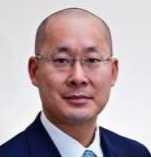

R. Timothy Kearney, PhD, joined the Community Health Center in October 1998 and has served as the Chief Behavioral Health Officer for the past 20 years. In that role he provides direct clinical care across the age span, with a focus of children and families, supervises residents in the American Psychological Association accredited Postdoctoral Residency program, and leads a diverse staff of over 225 staff who provide care in outpatient clinics, school based health settings, homeless and domestic violence shelters, and primary care centers throughout Connecticut. He is also Senior Faculty at the Weitzman Institute. Dr. Kearny earned his BA with a combined major in Psychology and Spanish Literature at Yale University and pursued graduate work at Fuller Theological Seminary where he earned his MA (Theology) from the Graduate School of Theology and his PhD (Clinical Psychology) from the Graduate School of Psychology. He has also completed the post graduate Primary Care Behavioral Health training program at the University of Massachusetts Medical School, Worcester. He is a licensed psychologist in Connecticut. He is the author of Caring for Sexually Abused Children: A Handbook for Families and Churches (Intervarsity Press, 2001) and more recently has contributed to articles in the areas of resident training and the provision of school based behavioral health care. Dr. Kearney received the 2019 Distinguished Contribution for Psychology in the Public Interest award.
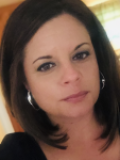
Stacy Hankey-Mangini, DSW, LCSW earned her BSW at Western New England University, her MSW from Springfield College, and her DSW from Capella University. She is a licensed clinical social worker in the state of Connecticut. She joined the Community Health Center’s School Based Heath Center staff in 2010 as a Behavioral Health Clinician in an elementary school, and has been one of the Regional Directors of School Based Behavioral Health since 2018. Dr. Hankey-Mangini’s clinical work focuses on using CBT, play therapy and mindfulness interventions with children, adolescents, and families. She has experience working in a variety of settings including schools, hospitals, residential facilities, and juvenile detention centers.
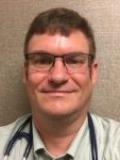
Robert Dudley, MD, MEd, FAAP, joined the Community Health Center of New Britain, CT as a National Public Health Scholar in the summer of 1996 after completing his residency at the Children’s Hospital of Philadelphia. He has been involved in the New Britain community as the school district’s medical advisor for the past twenty five years. He has held multiple rolls at the state and national level with the American Academy of Pediatrics, currently as the Connecticut Chapter’s Immediate Past President and as the Chair of the Community Access to Child Health (CATCH) grant program. He is a member of the national and state AAP School Health Committees. Dr. Dudley has championed quality improvement initiatives in the areas of substance abuse screening, developmental screening, depression screening, immunizations, asthma, and STD screening. He has been actively involved in pediatric obesity and community based participatory research projects for the past thirteen years, with presentations of Healthy Tomorrows, RWJF Salud America, and Invest Health grant program data at the AAP Future of Pediatrics, Weight of the Nation, and NICHQ conferences, where he was honored with NICHQ’s 2010 Outstanding Faculty Achievement Award. He serves as the medical advisor for Klingberg Family Center’s Webster House, which serves medically and behaviorally complex teens from across Connecticut. He is an assistant clinical professor at the University of Connecticut School of Medicine.
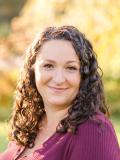
Alex Munro, PsyD, is the On Site Behavioral Health Director at CT Pediatrics at Community Health Center where she works with children and families providing individual and family therapy. Additionally, she supervises psychology trainees at the practicum and post doctoral levels. Dr. Munro earned her bachelor’s degree in psychology from Fairfield University, and went on to earn her doctorate in clinical psychology from Antioch University New England. Dr. Munro has had the privilege of completing her training in various pediatric settings including a therapeutic day school, an adolescent inpatient unit, as well as community mental health clinics. Dr. Munro’s clinical interests include adolescent care, family systems, and attachment and trauma informed interventions.
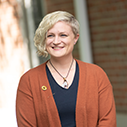
Reese Ramponi, APRN, PMHNP-BC, is a white, queer, ADHD- Autistic person raised in Alaska (unceded Dena'ina Athabaskan land). After moving to the East Coast in 2009, Reese studied Religion and Psychology at Dartmouth College and worked as a wilderness adventure guide before returning to graduate school. They completed Yale's Psychiatric Mental Health Nurse Practitioner program and have been working with queer and neurodivergent youth since 2018. Reese is dedicated to creating accessible, decolonized spaces where clients are given agency to make informed decisions about their health. Trained in ketamine assisted therapy, they are passionate about helping people, especially those who have been traditionally excluded from evidence based medicine models, find therapeutic practice both within and outside of mainstream Western medicine. Reese has been involved in queer and neurodiversity advocacy for the past 8 years as a photographer, healthcare educator, and change facilitator, beginning with the development of a peer support program at Yale School of Nursing. They have presented at Yale Medical School, Dartmouth College, The Philadelphia Trans Wellness Conference, and the Institute of Contemporary Psychotherapy, and provided professional development through Teach for America, the Chicago School of Professional Psychology, and the American Association of Nurse Practitioners. They were the recipient of the Dartmouth Journalism Award for socially conscious journalism and the New Haven City Wide Open Studios Artist in Residence Grant. Some of their other passions include roller skating, travel, and existential therapy.
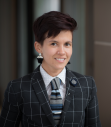
Renée Reopell, LCSW, is a queer/ genderqueer, Boricua decedent (Puerto Rican/ Taino), born and raised in mainland US in Washington D.C. (unceded Piscataway, Pamunkey, the Nentego (Nanichoke), Mattaponi, Chickahominy, Monacan, and Powhatan land). They hold a master’s degree in social work from NYU, with a focus in sexuality and gender, and have been privileged to support LGBTQ+ youth for over a decade through trauma-informed and harm-reduction care practices. A ceramicist, cat parent, and mushroom hunter, Renée is also in private practice from a health equity framework, and believes in the power of trans youth.
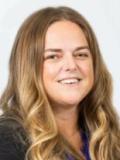
Addie Van Zwoll, MJ, MSW, LCSW, has worked in the school-based healthcare field at the local, state, and national level since 2011. As a clinical social worker and manager of behavioral health services at a local SBHC, she was able to provide direct clinical services and expand behavioral health programming, including the introduction of alternative to suspension programs and a calm room. Ms. Van Zwoll also served on the Illinois School-Based Health Alliance Steering Committee for several years. Ms. Van Zwoll is passionate about working with adolescents and increasing access to mental health care. She joined the SBHA in 2023 and is currently working on a variety of projects, including both program and consulting work. Ms. Van Zwoll is a graduate of Western Michigan University (Bachelor of Social Work, Bachelor of Arts-Criminal Justice, 2006), University of Michigan (Master of Social Work, 2007), Loyola University Chicago (Master of Jurisprudence in Children’s Law & Policy, 2014), has a certificate in School Discipline Reform also from Loyola University Chicago, and is currently pursuing her PhD in Social Work from Loyola University Chicago.
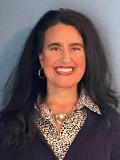
Paula Fields, MSN, BSN, RN, is the Vice President of Programs & Technical Assistance at the School-Based Health Alliance. She has worked in the school-based health care field for over 25 years. Paula exudes passion for children's well-being. She joined the School-Based Health Alliance in 2016. Her current work at SBHA includes programs, the development of tools and resources, technical assistance and training, educational offerings, planning and implementing school-based health centers, and building school and community partnerships to work towards student success. Paula has a wealth of experience in building school-community partnerships, leading quality initiatives, grants management, and consulting to promote, plan, and implement health and social supports provided by the community. She enjoys working with existing school-based health centers on service expansion, improvement, and fiscal turnaround and has a diverse background in outpatient clinic administration, quality improvement, and grants management. Before coming to SBHA, Paula oversaw an extensive outpatient clinical provider practice, including planning, starting, and sustaining a school-based health center, providing state-wide SBHC technical assistance and training, and serving as the first state-level community school coordinator. Paula recently served many years on a board of directors for a Federally Qualified Health Clinic. She holds a Masters degree in nursing education and administration, a Bachelor degree in nursing, and an active Registered Nurse license.
Weitzman Institute Disclosure Statement
It is the policy of the Weitzman Institute to ensure that Continuing Education (CE) activities are independent and free of commercial bias. To ensure educational content is objective, balanced, and guarantee content presented is in the best interest of its learners' and the public, the Weitzman Institute requires that everyone in a position to control educational content disclose all financial relationships with ineligible companies within the prior 24 months. An ineligible company is one whose primary business is producing, marketing, selling, re-selling or distributing healthcare products used by or on patients. Examples can be found at accme.org.
Faculty participating in a Weitzman Institute-sponsored activity must disclose to the planning committee and audience all financial or other relationship(s) with ineligible companies.
Faculty Disclosures
No faculty disclosed a relevant financial relationship for this program.
Anthony Dimartino, MA
Ho-Choong Chang, MD
Rob Dudley, MD, MEd, FAAP
Paula Fields, MSN, BSN, RN
Stacy Hankey-Mangini, DSW, LCSW
Alexandra Munro, PsyD
Reese Ramponi, APRN, PMHNP-BC
Renee Reopell, LCSW
Adriane Van Zwoll, PhD, MJ, MSW, LCSW
Accreditation Statement
In support of improving patient care, Moses/Weitzman Health System Inc. and its Weitzman Institute is jointly accredited by the Accreditation Council for Continuing Medical Education (ACCME), the Accreditation Council for Pharmacy Education (ACPE), and the American Nurses Credential Center (ANCC) to provide continuing education for the healthcare team.
By completing this activity, you provide Moses/Weitzman Health System Inc. the permission to share completion data with the ACCME and the certifying board(s).
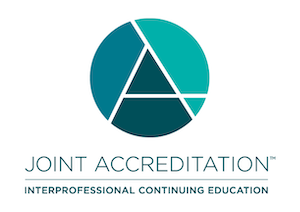
Available Credit
- 20.00 AAPA Category I CMEThrough Joint Accreditation, Moses/Weitzman Health Center, Inc./Weitzman Institute is able to provide American Academy of PAs (AAPA) credit to physician assistants at its activities. Participants should only claim commensurate credit with the extent of their participation in the activity.
- 20.00 ACE/ASWBThrough Joint Accreditation Moses/Weitzman Health Center, Inc./Weitzman Institute is able to provide Association of Social Work Boards (ASWB) credit to social workers at its activities.
- 20.00 AMA PRA Category 1 Credit™Through Joint Accreditation, Moses/Weitzman Health Center, Inc./Weitzman Institute is able to provide AMA PRA Category 1 Credit™ to physicians at its activities via Accreditation Council for Continuing Medical Education (ACCME).
- 20.00 ANCCThrough Joint Accreditation, Moses/Weitzman Health Center, Inc./Weitzman Institute is able to provide American Nurses Credentialing Center (ANCC) nursing credit to nurses at its activities.
- 20.00 APAThrough Joint Accreditation, Moses/Weitzman Health Center, Inc./Weitzman Institute is able to provide American Psychological Association (APA) credit to psychologists at its activities.
- 20.00 Participation Hour(s)You are able to download an unaccredited Participation Certificate for your records if you are not able to use any of the credit types provided for this activity or if this activity does not offer accredited CME/CE credits.
Registration Instructions
- Please register for this activity prior to the start of the first session you wish to attend.
- If you are attempting to register for this activity after the session you wish to attend has started and the activity says "expired," please submit a ticket to our support center. A member from our team will respond as soon as possible.
Required Hardware/Software
- This online activity requires use of a device connected to the Internet, such as a computer tablet or mobile device.
- The activity will take place over Zoom, which must be accessed directly from within the activity.

 Facebook
Facebook X
X LinkedIn
LinkedIn Forward
Forward